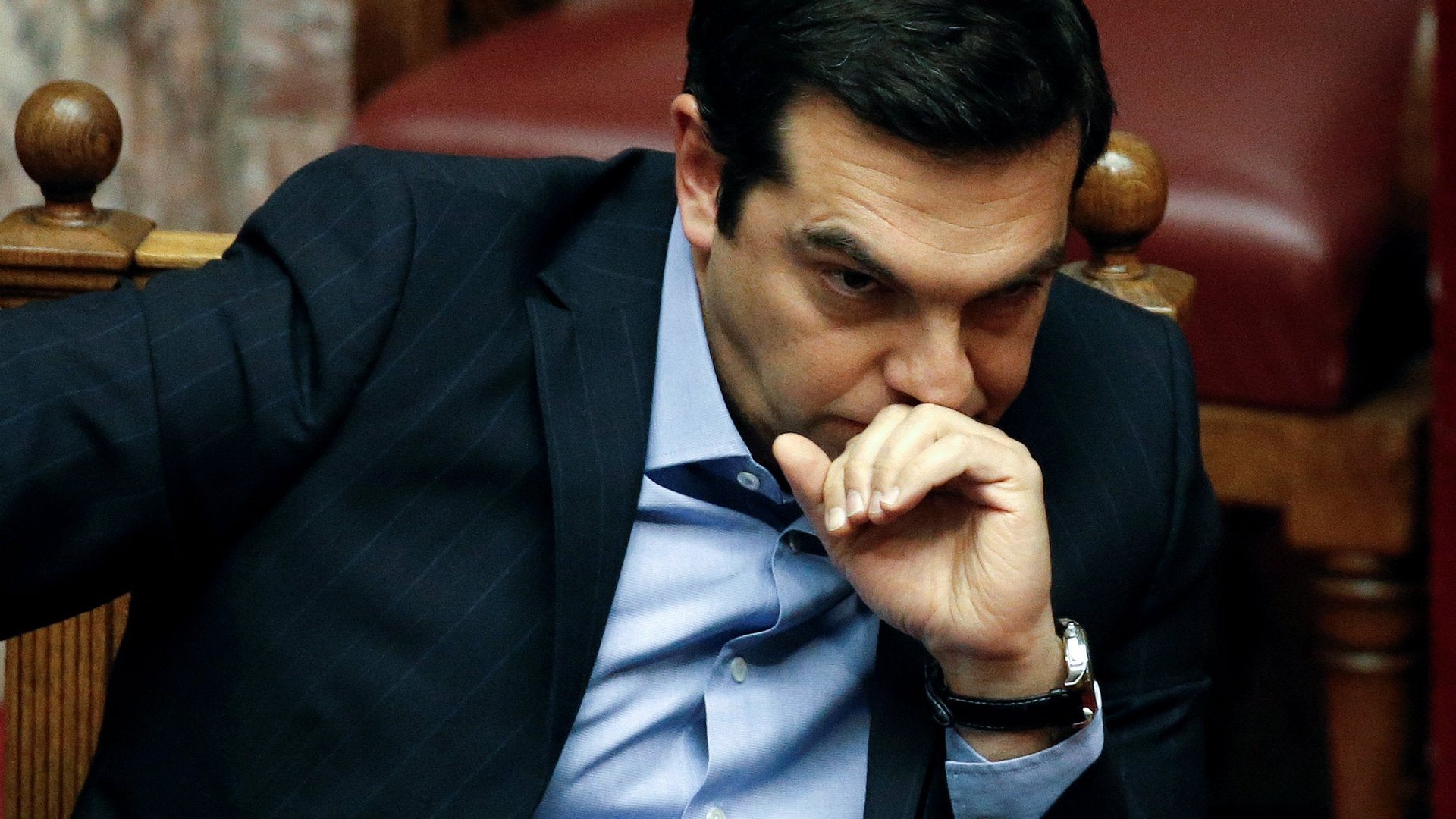Greece’s headache-inducing, language-mangling debt crisis is back with a vengeance
“Greek lawmakers vote for austerity as protests turn ugly” (CNN)


“Greek lawmakers vote for austerity as protests turn ugly” (CNN)
“EU and IMF split over debt relief for Greece” (RFI)
“Greece says deal with lenders paves way for debt relief” (Reuters)
These headlines are from this week, but they could have easily run a year ago. Beat for beat, the script remains the same:
Greek officials and their euro-zone counterparts held an emergency meeting in Brussels to urgently discuss Greece’s adherence to the terms of their bailout deal. Athens had passed new austerity measures the day before to satisfy its creditors—approved narrowly by parliament after a rancorous debate running late into the night—amid fierce public protests. Greece pleaded that it couldn’t cut much more and desperately needs debt relief; creditors said they’d think about it, and came up with new ways to punish Athens if it slips up. The group will meet again in a few weeks, with vital bailout funds stuck in limbo in the meantime.
What more can be said? A lot, it turns out. The EU loves convoluted communiqués that need professional translators steeped in eurospeak to decipher.
The post-meeting statement by euro-zone finance ministers laid it on thick with acronyms, jargon, and tortured legalese. Behold the run-on sentences and awkward syntax of this magnificent 120-word bullet-point, explaining how to keep Greece on track with its bailout targets:
An additional contingency mechanism, which will be legislated to ensure that a package of measures, including non-discretionary measures, would be automatically implemented as soon as there is objective evidence of a failure to meet the annual primary surplus targets in the programme (3,5% in the medium-term). If measures are enacted with a temporary nature when the mechanism is triggered, permanent structural measures agreed with the institutions, including revenue measures, should become effective in the year thereafter, as part of the regular budgetary process, in order to bring the budget structurally back on track. Exceptions to the activation of the mechanism will be limited to exceptional events with a major economic impact outside government control. Such exceptions need to be agreed with the institutions.
In Brussels, it seems “More of the same, we’ll meet again later” just isn’t an adequate progress update.